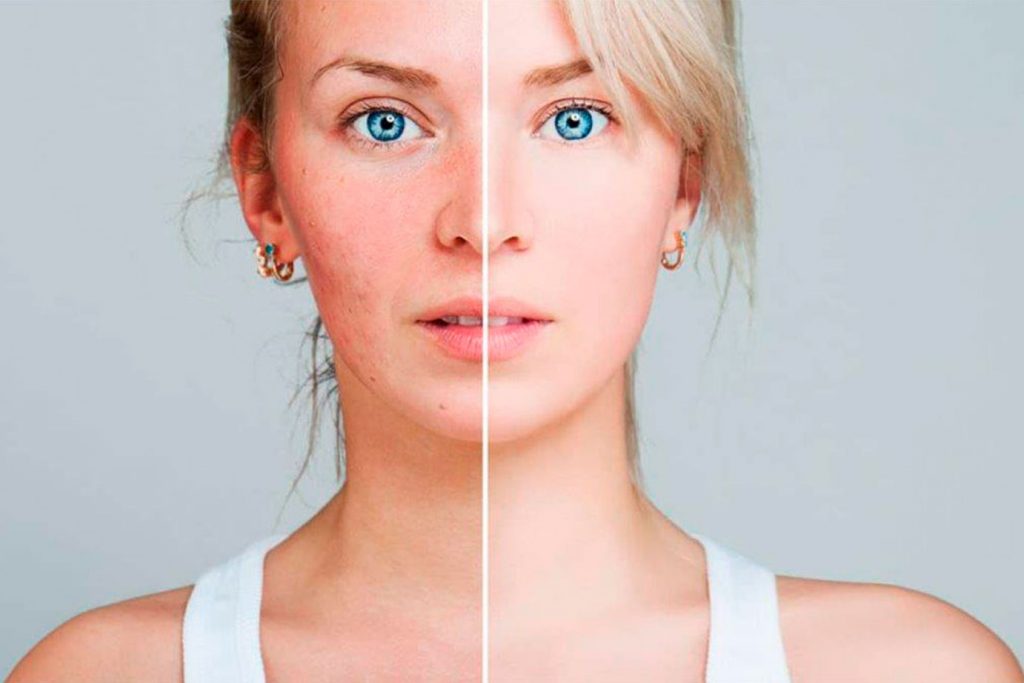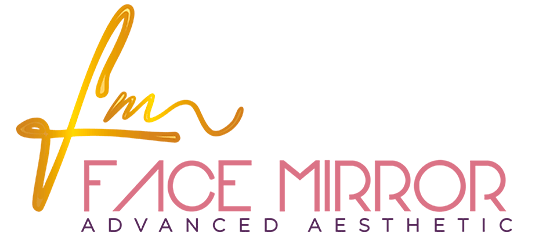
Treatment for rosacea
We identify the trigger of rosacea to prescribe the best treatment for each case.
Do you suffer from redness on your cheeks, nose, chin, and forehead? This could be rosacea, did you know? In these cases, besides the reddish hue, the skin may show blood vessels in central areas of the face, small reddish pimples, some with pus, making the patient uncomfortable.
.
The initial symptoms of rosacea may be confused by many women as acne or menopausal factors. Rosacea sufferers generally feel that their skin is burning or prickly, and the symptoms are aggravated by drinking alcohol or eating hot foods. When exposed to heat and sun or exercising, you may also feel the discomfort.
Pre-disposition to Rosacea
The incidence of rosacea is higher in women and in people with fair skin, hair and eyes. The disease is most common between the ages of 30 and 50. Women may be more pre-disposed by the use of cosmetics.
Microorganisms such as Demodex folliculorum and Demodex brevis and an imbalance in the patient’s immune system are also related to rosacea.
Although women are more affected, the symptoms in men are usually more severe. However, an evaluation by a rosacea specialist is crucial to identify what triggered the disease and prescribe the best treatment.
Rosacea symptoms
List some of the main symptoms of Rosacea:
- Periods of abrupt sensation of redness and warmth on the skin;
- Dilatation of small permanent vessels;
- Persistent facial erythema;
- Presence of pimple-like papules and pustules;
- Occurrence of nodules, which may form granulomatous plaques;
- Irregular and lobulated thickening of the skin of the nose, which may reach the frontal region, malar (cheekbones) and ear pinnae;
- Eye alterations such as irritation, dryness, blepharitis, conjunctivitis, and keratitis;
For these reasons, avoid taking baths with very hot water, consuming alcoholic beverages and very hot and spicy foods.
Types of Rosacea
One of the diseases most seen by dermatologists, rosacea, has several subtypes, and the treatment is based according to the identification of this subtype.
In the subtypes, we have Erythemato telangectasia rosacea, Ocular rosacea, Fimatosa rosacea, and Papolopustular rosacea. And often, they are mixed and coexisting. The treatment will be directed according to the subtype, as mentioned. For example, that patient who has that sensitive skin and persistent redness, many times, the treatment of rosacea with pulsed light will bring much more benefit than topical medications.
But one thing doesn’t change, a good skincare routine is going to be part of the treatment of any subtype of rosacea. It’s one of the principles of rosacea, a defect in the skin barrier. It’s a skin that is going to persistently have to be being moisturized with the right products. You will always have to be extra careful with any kind of acid and vitamin C that can irritate that rosacea skin.
What is the care? What are the trivia, what is true and what is not regarding the skincare routine for rosacea?
Skincare is also welcome, such as the use of cold thermal water to constrict the vessels and reduce the redness of the skin area. The moisturizer with specific actives also helps in the recovery of the skin’s protective barrier, promoting a soothing action.
Seborrheic Dermatitis associated with Rosacea
We also have to pay attention to some nuances, some diseases that make the treatment of rosacea difficult. And it is very common, for example, seborrheic dermatitis, which is a disease that is often present in the rosacea patient.
For seborrheic dermatitis, good moisturizing helps a lot. Now, what type of soap is ideal for a patient who has both rosacea and dermatitis?
Mild soaps. Cleansing lotions that will clean the skin without excessively removing the grease and thus preventing the skin from becoming irritated and losing the lipids and ceramides. Finally, natural protection.
Sunscreen for Rosacea
Sunscreen is very important for people with rosacea. Rosacea has its famous triggers. Spicy foods, ultraviolet light, and alcoholic beverages. Sun protection will help to reduce the episodes of exacerbation of this rosacea, persistent inflammation of the skin.
Acids for those with Rosacea
We have already talked about the soaps, which have to be gentle. The moisturizer, which is a must regardless of the type of rosacea. The use of sunscreen. Coming back to the question of acids and vitamin C, what happens to the skin barrier? What does the patient have to avoid when he has rosacea, dermatitis And a more inflamed skin?
The first thing is that when the skin is inflamed, it is no use trying to invent something. We should moisturize a lot! After a while, if we want to work on the texture and quality of the skin, it will always be by mixing hydration with some kind of texturization.
It is worth pointing out that many times, the skin of the rosacea patient does not tolerate it. What we observe is that sometimes vitamin C, which is a simple antioxidant in the skincare routine, irritates the skin with rosacea.
We can turn to other types of antioxidant. It’s not just vitamin C that’s on the market. Retinol acid, retinoic acid and glycolic acid often irritate the skin with rosacea. So, we look for other alternatives so that we can achieve the goal, which is a well controlled rosacea and a well cared skin.
Hyaluronic acid, everyone is confused, because it is said that it cannot be used on rosacea skin. Hyaluronic acid, although it has the name “acid”, but it is a moisturizing agent. So, hyaluronic acid can be used on skin with rosacea.
Rosacea Treatments
Rosacea has no cure, but it can be controlled by applying the right treatment according to the type of rosacea diagnosed. What is the treatment for rosacea like? We have laser treatments, photobiomodulation treatments, oral medications, antibiotics, and even isotretinoin. Rosacea fimatosa, which increases the volume of the nose and chin, may even require surgical procedures. It is always important to see a qualified professional who can assess, classify the subtype, answer your questions, and guide you to the best treatment for your rosacea
Click here and schedule your appointment.
